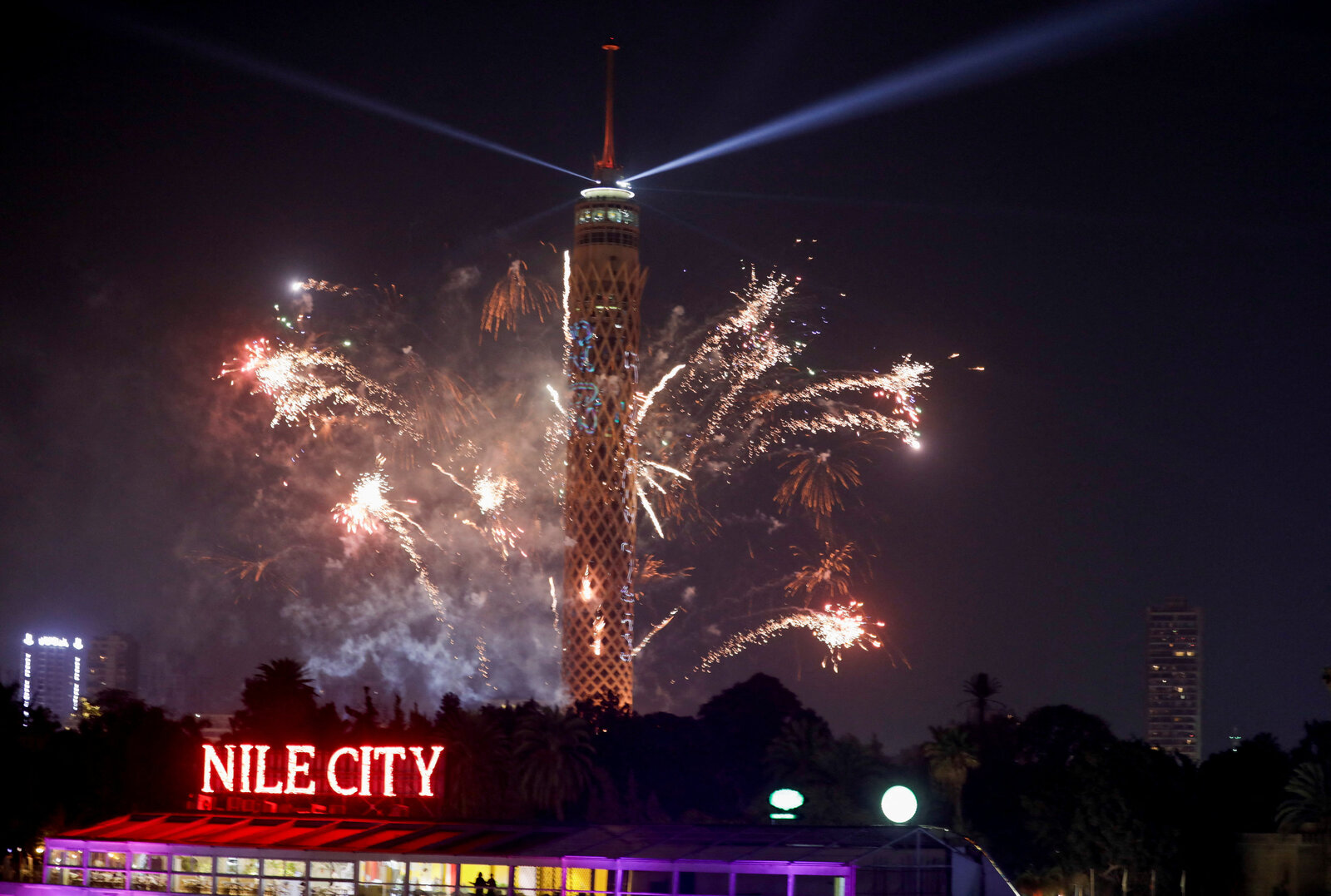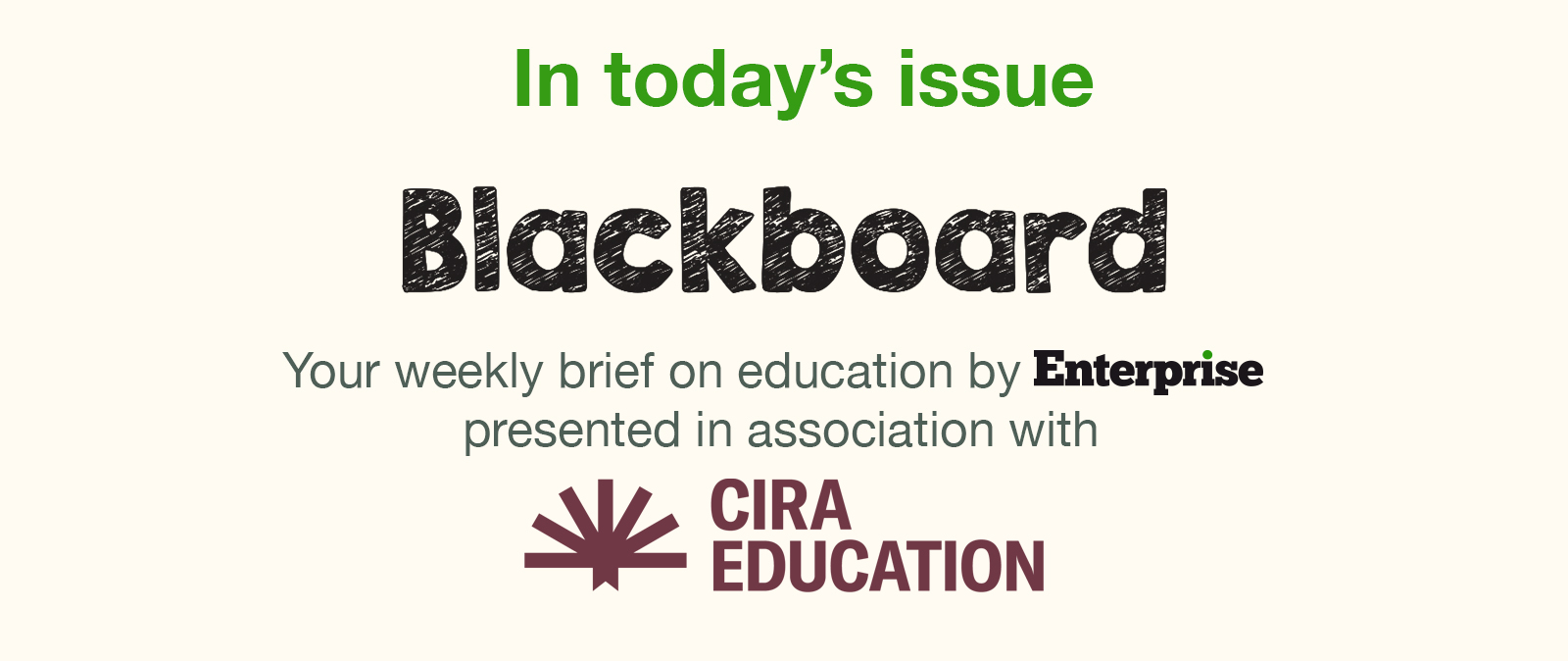THIS MORNING: Welcome to 2023, folks

Good morning, wonderful people — and a very warm welcome to a brand new year. We’re kicking off 2023 with plenty of positive news. Since we last indeed in your inboxes, there have been strides forward to solve the issues that dogged imports last year. And there are more fresh leaves being turned over, as the government released the final version of its long-awaited state ownership strategy, and the private-sector minimum wage got a boost.
The key news triggers as we start a new month:
- December’s Purchasing Managers’ Index for Egypt will land on Wednesday, 4 January.
- Foreign reserves figures for December should be out later this week.
- Inflation figures for December will be released on Tuesday, 10 January.
- The national dialogue will kick off on Saturday, 14 January.
- The government’s fuel pricing committee will meet this month to decide quarterly fuel prices.
- Global movers and shakers will descend on Davos for the World Economic Forum’s annual meetings on 16-20 January.
- The IMF will publish an updated World Economic Outlook towards the end of the month.
WHAT’S HAPPENING TODAY-
The House is back for the first session of 2023: MPs will discuss two draft laws that would allow the government to bring in companies to develop two container terminals at Alexandria’s Dekheila port and the Ain Sokhna port. Hutchison Ports and MSC signed initial agreements with the government to build new container terminals at the Dekheila and Sokhan ports last year.
Green hydro + oil bills up for a vote: The House is also set to vote today on a draft law to greenlight oil exploration by the Egyptian General Petroleum Company and Eni’s local arm in the Western Desert; and a presidential decree approving a EUR 500k grant agreement from the French Development Agency (AFD) to develop our green hydrogen sector.
TOMORROW- El Moselhy in the hot seat: Supply Minister Ali El Moselhy will face questions from MPs on plans to ensure the availability of key commodities including rice amid soaring prices in the lead-up to Ramadan, as well as on bread subsidies and ration cards.
PSA- Ramadan shopping is starting early this year: The government’s Ahlan Ramadan supermarket expo is being rolled out at a minimum of five locations in each governorate as well as supermarkets nationwide as of yesterday, giving shoppers three months to buy discounted essentials before the start of the holy month, Supply Minister Ali El Moselhy said in a statement. Some unspecified commodities will be sold at fixed prices, he added. We’re still waiting to hear more on the suggested price list the government is drawing up for certain essential foods. Ramadan is set to begin toward the end of March.
THIS WEEK-
The EGX will be trialing an update (pdf) to its trading platform on Wednesday, 4 January and Thursday, 5 January from 3pm to 4:30pm. The update includes changes to the way stocks’ daily closing price is calculated and approved.
DATA POINT- The value of our natural gas exports jumped 140% y-o-y to reach USD 8.4 bn in 2022, Oil Minister Tarek El Molla said in a statement. The rise in the value of exports from USD 3.5 bn a year earlier came on the back of an increase in global LNG prices, he said. Natural gas exports hit 8 mn tons in 2022, up 14% on the previous year, El Molla added.
REMEMBER- Some 90% of the natural gas we exported last year was directed to Europe, as Egypt looked to capitalize on the supply gap left by the loss of Russian fossil fuels to the bloc. We take a look at the country’s efforts to position itself as a regional hub for energy exports in our year in review on the energy sector.
|
THE BIG STORY ABROAD- The IMF has a less than rosy outlook on the year ahead: The new year will be “tougher than the year we leave behind” as a third of the world economy is set to fall into recession, IMF Managing Director Kirstalina Georgieva told CBS’ Face the Nation program (watch, runtime: 23:49). We’re already seeing a slowdown in the three big economies — the US, EU and China — with half of the EU expected to fall into recession in 2023, Georgieva said. For emerging markets and developing economies, “the picture is even more dire … because on top of everything else they get hit by high interest rates and by the appreciation of the USD,” Georgieva said, predicting “devastation” for countries with high debt levels.
AND- Brazil swore in new president Luiz Inácio Lula da Silva yesterday, the AP and Reuters report. The third-time president returned to power in a victory for the country’s political left, pledging in his inauguration speech to hold his predecessor Jair Bolsanaro’s administration to account for what he branded as criminal wrongdoing over its handling of the pandemic, among other issues.
RIP-
Former pope Emeritus Benedict XVI died at the Vatican on Saturday at the age of 95. Benedict XVI headed the Catholic church from 2005 until his resignation in 2013, making him the first pontiff to resign in 600 years. (Guardian | Wall Street Journal | Reuters | CNN | BBC)
Brazilian soccer legend Pele died in Sao Paulo on Thursday aged 82 after suffering complications from colon cancer. The only player to be a World Cup victor three times, Pele is widely regarded as the greatest footballer of all time. (Washington Post | CNBC | New York Times | CNN | AP | BBC)
CIRCLE YOUR CALENDAR-
The Egyptian-Qatari Business Forum will launch during 1Q 2023, sources reportedly told Mubasher last month.
This could coincide with new investments from Qatari firms: The Sovereign Fund of Egypt is expecting more investments from the Qatari Investment Authority (QIA) early next year. The wealth fund is currently doing due diligence and finalizing agreements to purchase as much as USD 2.5 bn worth of state-held stakes in unlisted companies.
Check out our full calendar on the web for a comprehensive listing of upcoming news events, national holidays and news triggers.

*** It’s Blackboard day: We have our weekly look at the business of education in Egypt, from pre-K through the highest reaches of higher ed.
In today’s issue: It’s set to be another tough year for the education sector, as rising inflation, the EGP devaluation, and the subsequent cost pressures faced by schools continue to dominate administrators' concerns.